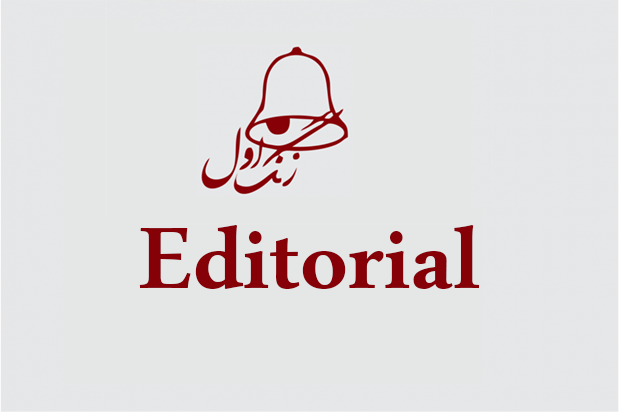The Eid message attributed to Mullah Hebatullah, the Taliban leader, on the occasion of Eid al-Fitr comes at a time when Afghanistan is experiencing the bloodiest wars in the recent month. While this message talks of the futility of war, in practice, war is raging in many Afghan provinces, and the Taliban are launching attacks to seize the centers of a number of provinces.
The Afghan government’s offer of a ceasefire during Ramadan was rejected by the Taliban, and the Taliban continued their fighting during Ramadan.
This message reminds of the violation of the Doha Agreement and warns of its consequences. What should be noted is that all four clauses of the guarantee and the mechanism of non-use of Afghan territory, the withdrawal timeline, the intra-Afghan negotiations and the comprehensive and permanent ceasefire that should be included in the intra-Afghan negotiation agenda are intertwined like a chain. Negotiations between Afghans, which were supposed to discuss the issue of ceasefire, ended virtually fruitless. While the Americans and NATO-led coalition forces have started the withdrawal of their forces and leave their bases, there is no news of further negotiations and ceasefire. If the Doha Agreement were to be implemented in accordance with its timeline, all its provisions, including the continuation of peace talks and the reduction of violence and ceasefire, should have also been implemented. When the Taliban complain about a change in the withdrawal timeline, they must bear in mind that intra-Afghan talks in Doha have never been fruitful and that violence has never diminished since February last year, for more than a year.
This message also said that according to the Doha Agreement, the remaining Taliban prisoners should be released and their leaders’ names should be removed from the blacklist of the UN Security Council and the US government. The two issues are conditional on the progress in the intra-Afghan talks in the Doha Agreement. The agreement states that sanctions on the Taliban leadership will be lifted if the intra-Afghan talks progresses. The question that arises is whether there has been any progress in the peace negotiations.
This message accused the Afghan government of sabotaging the political peace process. Meanwhile, the Istanbul Conference was not held due to the Taliban’s non-participation, although the message said that the Taliban should be informed of all the details in advance in any process, which implies their lack of knowledge of the details of the preparations for the Istanbul Conference.
The message calls on the United Nations to maintain its neutrality in Afghanistan, and in particular in the way people live and think. However, after the Biden administration came to power, the issue of peace with the Taliban has changed substantially, and this administration has convinced the powerful countries of the world and the region, and the United Nations as the main drivers of the Afghan peace process.
This part of the message contradicts the world’s efforts to achieve peace under the auspices of the United Nations. In the new chapter of the Afghan peace process, which is to begin at the Istanbul Conference, and in which there is a global and regional consensus that the talks are to be held under the auspices of the United Nations, and only then can the decisions of that conference be believed to be binding.
Although this message talks about war negatively, the Taliban are practically at war with the Afghan government, and the Afghan government says the Taliban are trying to overthrow a number of provinces.
Although the Taliban have not claimed responsibility for a number of recent bloody attacks., following the car bombings and roadside bombings, civilians have suffered heavy casualties, mainly due to the ongoing war, and the warring parties, especially the Taliban, have not yet returned to the Istanbul Conference and called for a ceasefire at the request of the government.
While the war is practically in progress in Helmand, Kandahar, Ghazni, Farah, Baghlan and a large number of other provinces, it is better if the Taliban accept a ceasefire and return to the negotiating table to show their intentions towards peace and prevent further killing.












